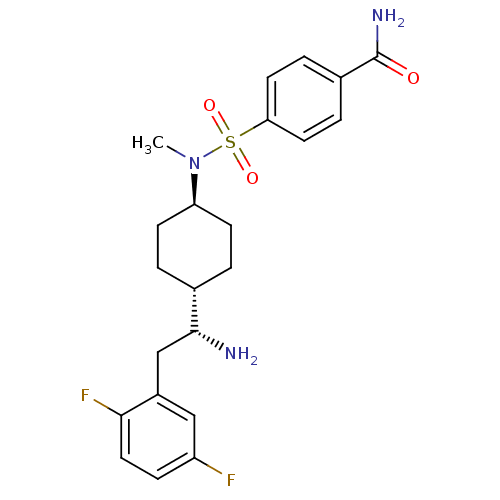BDBM50338448 CHEMBL1682982::trans-4-(N-(4-((R)-1-amino-2-(2,5-difluorophenyl)ethyl)cyclohexyl)-N-methylsulfamoyl)benzamide
SMILES CN([C@H]1CC[C@@H](CC1)[C@H](N)Cc1cc(F)ccc1F)S(=O)(=O)c1ccc(cc1)C(N)=O
InChI Key InChIKey=IPNXBEZLTRGXIE-CFCCAZDESA-N
Data 5 IC50
Activity Spreadsheet -- Enzyme Inhibition Constant Data from BindingDB
 Found 5 hits for monomerid = 50338448
Found 5 hits for monomerid = 50338448
Affinity DataIC50: >3.50E+4nMAssay Description:Inhibition of FAPMore data for this Ligand-Target Pair
Affinity DataIC50: 1.50E+4nMAssay Description:Inhibition of QPPMore data for this Ligand-Target Pair
Affinity DataIC50: 2.80E+4nMAssay Description:Inhibition of DPP9More data for this Ligand-Target Pair
Affinity DataIC50: 6.50E+4nMAssay Description:Inhibition of DPP8More data for this Ligand-Target Pair
